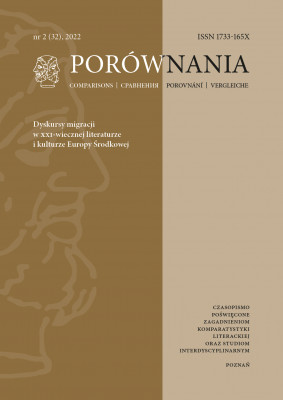Autofiktionale Generationenerzählungen in den neusten Romanen über postsowjetische Migration: Zu Sasha M. Salzmanns Im Menschen muss alles herrlich sein (2021), Lena Goreliks Wer wir sind (2021) und Dmitrij Kapitelmans Eine Formalie in Kiew (2021)
This essay explores three prose texts published in 2021 by representatives of the Russian-Ukrainian-Jewish post-migrant generation with the focus on conflicts with their parents’ generation, which has been problematised in those novels. Gorelik’s, Kapitelman’s and Salzmann’s autofictional family stories refer to their parents’ Soviet experiences, told and pictured from a child’s perspective, and examine their mutual alienation. In the diachronic axis of the generational narrative, attempts are made to recapitulate the Soviet legacy and family migration from the transnational perspective of arrival. The synchronic dimension of the novels deals with complicated processes of self-empowerment and critical interference with the German society. By using various aesthetic means of satire and irony, episodic-discontinuous narration and a play of changing perspectives, the texts document the sovereign self-determination and self-empowerment of the post-migrant authors in the German literary scene.
| Article Title | Type | Size |
|---|---|---|
| porownania.32.12.RUTKADUBROWSKA | [pdf] | [172 KB] |
